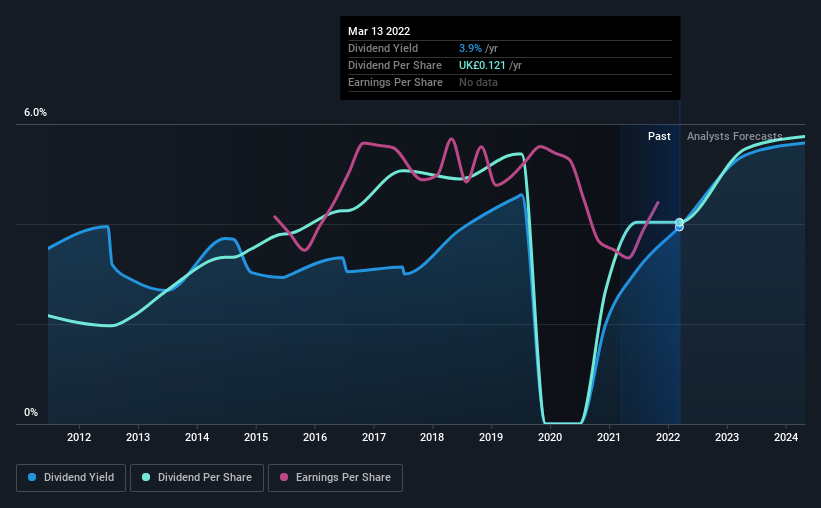DS Smith's (LON:SMDS) Shareholders Will Receive A Bigger Dividend Than Last Year
DS Smith Plc (LON:SMDS) will increase its dividend on the 3rd of May to UK£0.048, which is 20% higher than last year. This will take the dividend yield from 3.9% to 4.2%, providing a nice boost to shareholder returns.
Check out our latest analysis for DS Smith
DS Smith's Earnings Easily Cover the Distributions
A big dividend yield for a few years doesn't mean much if it can't be sustained. Before this announcement, DS Smith was paying out 73% of earnings, but a comparatively small 40% of free cash flows. Since the dividend is just paying out cash to shareholders, we care more about the cash payout ratio from which we can see plenty is being left over for reinvestment in the business.
The next year is set to see EPS grow by 41.7%. If the dividend continues on this path, the payout ratio could be 51% by next year, which we think can be pretty sustainable going forward.
Dividend Volatility
The company has a long dividend track record, but it doesn't look great with cuts in the past. Since 2012, the first annual payment was UK£0.065, compared to the most recent full-year payment of UK£0.12. This works out to be a compound annual growth rate (CAGR) of approximately 6.4% a year over that time. We have seen cuts in the past, so while the growth looks promising we would be a little bit cautious about its track record.
Dividend Growth May Be Hard To Achieve
Growing earnings per share could be a mitigating factor when considering the past fluctuations in the dividend. In the last five years, DS Smith's earnings per share has shrunk at approximately 4.7% per annum. Declining earnings will inevitably lead to the company paying a lower dividend in line with lower profits. However, the next year is actually looking up, with earnings set to rise. We would just wait until it becomes a pattern before getting too excited.
Our Thoughts On DS Smith's Dividend
Overall, we always like to see the dividend being raised, but we don't think DS Smith will make a great income stock. The payments haven't been particularly stable and we don't see huge growth potential, but with the dividend well covered by cash flows it could prove to be reliable over the short term. Overall, we don't think this company has the makings of a good income stock.
Market movements attest to how highly valued a consistent dividend policy is compared to one which is more unpredictable. Still, investors need to consider a host of other factors, apart from dividend payments, when analysing a company. As an example, we've identified 2 warning signs for DS Smith that you should be aware of before investing. If you are a dividend investor, you might also want to look at our curated list of high yield dividend stocks.
Have feedback on this article? Concerned about the content? Get in touch with us directly. Alternatively, email editorial-team (at) simplywallst.com.
This article by Simply Wall St is general in nature. We provide commentary based on historical data and analyst forecasts only using an unbiased methodology and our articles are not intended to be financial advice. It does not constitute a recommendation to buy or sell any stock, and does not take account of your objectives, or your financial situation. We aim to bring you long-term focused analysis driven by fundamental data. Note that our analysis may not factor in the latest price-sensitive company announcements or qualitative material. Simply Wall St has no position in any stocks mentioned.

 Yahoo Finance
Yahoo Finance 
